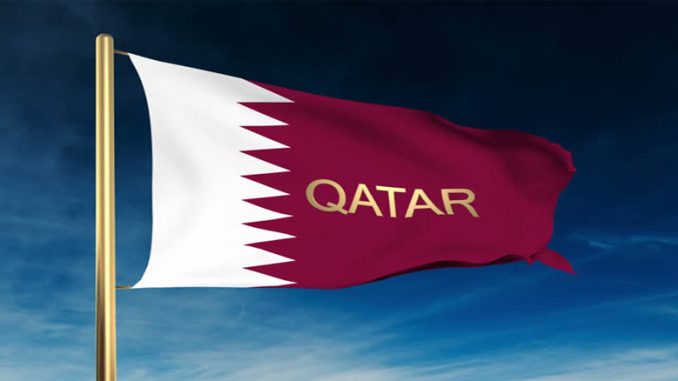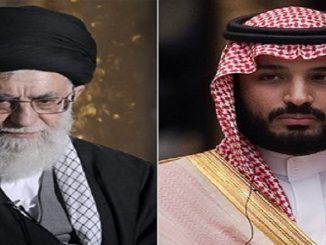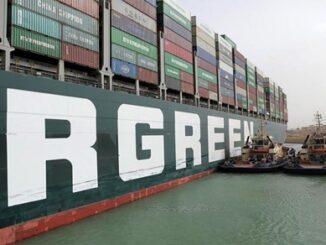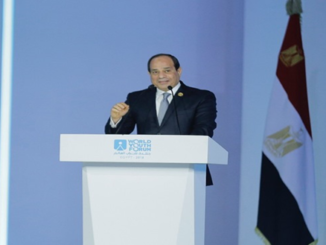
 BY: Kemal Öztürk*
BY: Kemal Öztürk*
This is called a “crackdown movement.” We cannot explain what is being done to Qatar with any other diplomatic concept. They literally cracked down on the country in a day.
Seven countries, including the Maldives (I wonder what pushed it to do so), blockaded Qatar by air, land and sea. There are no land roads leading to the country. The Qatari peninsula, standing upright in the middle of the gulf like a pine nut, does not know what to do. Iran said it would send bread and tomatoes by sea.
Is the regime or map going to change in Qatar?
Qatar has been calling for dialogue for the last two days: It is saying, “You misunderstood me, I’m ready for dialogue,” but its neighbors and the Maldives, located 10,000 kilometers away, are not showing any kind of détente.
That’s why I say it is called a “crackdown movement.” They asked Qatari citizens to leave the country, stopped their bank operations, and nobody can even bring a glass of water by land. This is not the way to act for those who want to solve the problem.
Such a harsh and abrupt operation including seven countries cannot be done to remove a few Hamas elements and a few exiled leaders of the Muslim Brotherhood from Qatar.
This is an act of changing the regime or map of the country.
Why?
Are classic excuses true?
Everyone is talking about three reasons:
1. Qatar hosted Muslim Brotherhood leaders. Despite all the calls, it continued to protect and support the leaders of this organization. Egypt and Saudi Arabia were very angry about this.
2. Qatar hosted the exiled leaders of Hamas and supported Gaza. While Israel was the one that had to be very angry, somehow, Egypt and Saudi Arabia were the ones bothered by this. Qatar did not listen again.
3. Under Donald Trump’s administration, the U.S. again declared Iran as an enemy, and called on Arabs to totally siege it. They even took oath by touching a luminous globe like the magic ball in the Lord of the Rings. Saudi Arabia and Egypt said they asked Qatar to swear on this globe, but Qatar rejected it. This time the U.S. must have been very angry.
Is this the reason for the crackdown movement?
Fehmi Kılıçkaya, my old friend who follows the agenda very well, said last night: “All these reasons do not convince me. These cannot be the only reasons for this operation. There must be something bigger, but I do not know what it is.”
While sipping our tea out on the balcony, these statements raised question marks in my head.
Cost of being small UK is heavy
I went to Qatar many times. The last time was to obtain the famous photos of torture in Syria. I was not surprised when I saw that the whole operation was run by the British. Qatar lived under British rule from 1850 to 1971.
Then I asked the following question: Why do all organizations and dark organizations in the world, necessarily have connections to Qatar? Qatar established close contact with organizations such as Hezbollah, the Muslim Brotherhood, Daesh, al-Qaida, al-Shabab and the Hashd al-Shabi. I’ve always found this very brave, but I could not quite figure it out. Where does such a small state get this courage?
Notice that all of these organizations have elbow contact with the British too. Qatar acts like a little U.K. It is quick and operational, able to solve problems and talk to everyone. So, it is in dialogue with all the organizations. The U.K, and indirectly, the U.S., supported and used this feature of Qatar. Qatar’s courage stems from this.
This time, however, this feature brought troubles for it. They cracked down on this small country on the grounds of supporting terror organizations. The same organizations have offices in London, but no one utters a word against the British.
Why did the British risk losing a country that it is like a Swiss army knife? Could it be that the United Arab Emirates is poised to play this role with greater appetite and unconditional obedience?
In fact, Qatar is trying to do things on its own initiative, regardless of its power. For example, it supported President Recep Tayyip Erdoğan in the July 15 coup attempt in contrast to all other countries.
Why didn’t they come together another time?
Think about it. Gaza is blockaded. Jerusalem is partly occupied by Israel every day. There was a coup in Egypt. Some 700,000 people were killed in Syria. Some 7 million Muslim refugees took to the roads. Hungry children starve in Muslim countries in Africa. Iran turned into a Persian empire with five capital cities. Lebanon was destroyed by Israel. Afghanistan and Iraq were occupied by the U.S. Syria was occupied by Russia. There was a coup in Turkey… While all of these were happening, not even two countries were able to come together and do something, yet, seven countries are united against Qatar and crack down on it.
What is happening? How were the countries that cannot come together, emirates and sheikhs who would not bat an eye if the world collapsed, became organized against Qatar in one day? Where are these lazy and lethargic Arabs?
For the first time in the Arab world after the 1967 war, such a great alliance is conducting such an operation. Something that has not been seen in 50 years.
Can we attribute the reason for this to the three point I listed above? Did they do this to say that Hamas and the Muslim Brotherhood should leave the country, and sever relations (which were very weak) with Iran?
I do not think this is the real problem according to my friend, Fehmi.
“So, what is it?”
There is something bigger, but we do not know exactly what it is.
Iran, Turkey, Egypt and Saudi Arabia, the four major states of the Islamic world, have begun to wrestle in Qatar, which is as small as a peanut.
Do you know who the referee is? The U.S. and the U.K.
Meanwhile, Israel is extremely pleased. “We are in the same boat as all Arab countries except Qatar,” said former Defense Minister Moshe Ya’alon.
You can understand the greatness of the crisis from the silence of the U.K., and the calls of the U.S. for dialogue. This is why either the regime, or the map will change there.
But I still cannot really understand why the Maldives is involved in the issue.
*Kemal Öztürk is a Turkish journalist. He writes columns for Yeni Şafak Turkish newspaper
(Published in Yeni Şafak daily newspaper on Wednesday, June 7, 2017)



